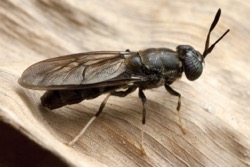Europe, the home of insect farms

The number of insect farms in Europe has grown significantly. Who are the top funded European insect farms?
Alternative solution
The main driver of sales in the pet industry is pet food. However, with fierce competition for ingredients from the growing human sector, which requires…
Did you think it would be this easy? Nope! Just register. It’s free! Lorem ipsum dolor sit amet, consectetur adipiscing elit. Ut cursus turpis vel cursus ullamcorper. Sed ante mi, finibus eget porttitor a, tincidunt ac dolor. Vivamus ornare semper lorem, consequat commodo lectus elementum vitae. Cras id mattis urna. Donec rutrum dignissim lacinia. Duis ultricies sapien at ipsum tincidunt.
Sed in iaculis elit, sit amet convallis felis. Pellentesque non justo lectus. Donec sollicitudin lorem in sapien euismod varius at vitae mi. Maecenas ut elit ac risus consectetur vulputate. Praesent vel orci ante. Curabitur egestas dapibus nisi ac laoreet. Nullam a lacinia libero, non fringilla nisl.
You’re out of free articles,
register for unlimited access